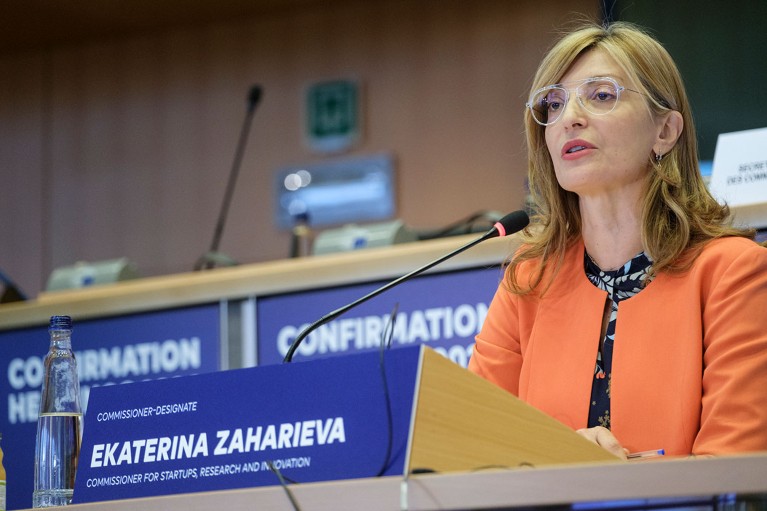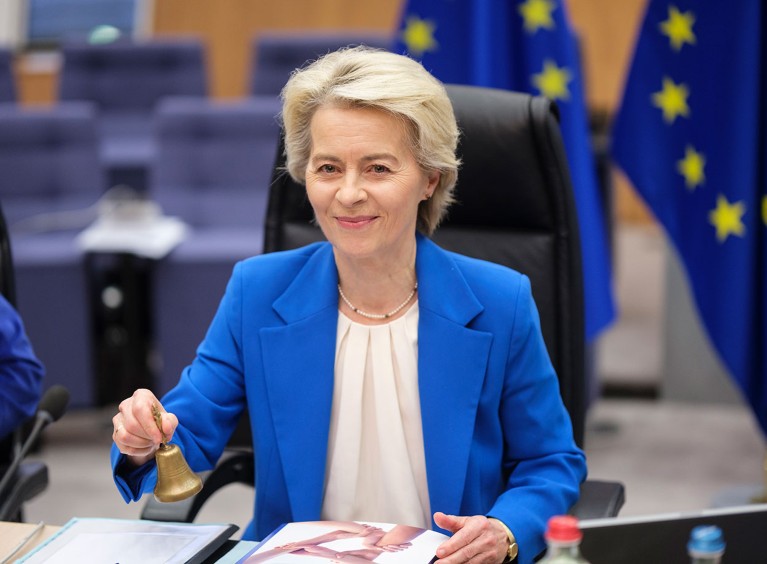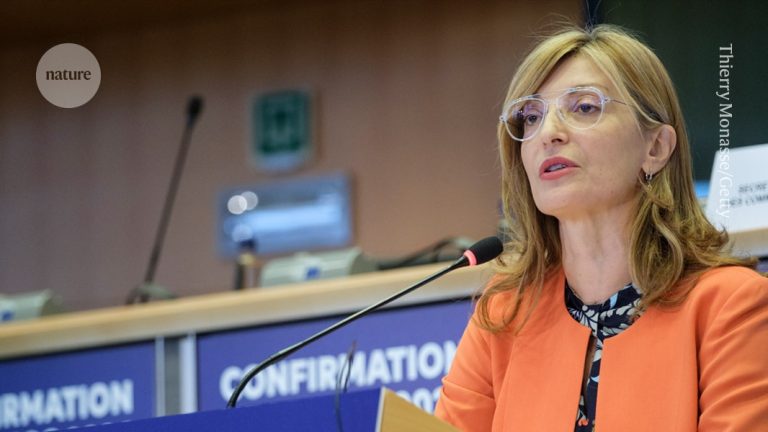
European Research Commissioner Ekaterina Zakharieva has held positions in the Bulgarian government.Credit: Thierry Monasse/Getty
The European Union has a new research chief charged with reshaping the world’s largest collaborative research program to help halt the bloc’s economic and technological slide.
Ekaterina Zaharieva, a lawyer who has held several positions in the Bulgarian government, but none related to science, became commissioner for start-ups, research and innovation on December 1.
For scientists, the focus will be on how Zaharieva will help shape the EU’s next multibillion-euro science program, monitoring the €95.5 billion (US$101 billion) Horizon Europe program. The program includes the bloc’s top funder for basic sciences, the European Research Council (ERC). But there is an increasing emphasis on strengthening industry participation in the program to stimulate innovation.
“With the ERC we are definitely attracting the best players in academia,” says Sylvia Schwaag Serger, research and innovation specialist at Lund University in Sweden. But other parts of the program haven’t attracted the industry’s “best players,” she said.
We need “much more private investment in research”, estimates Conny Aerts, astrophysicist at the Catholic University of Louvain (KU Leuven) in Belgium. “It is very low in the European context compared to other continents.” Aerts and Schwaag Serger are members of a group of experts appointed by the European Commission that in October made recommendations for the successor program, known as Framework Program 10 (FP10).
Technology Anxieties
Zaharieva’s appointment is part of a five-year reshuffle of the commission, the EU’s powerful executive body. The new mandate comes as the EU faces growing tensions with Russia and uncertain relations with the United States. The bloc is also desperate to improve its economic performance and free itself from its dependence on American and Chinese technologies.
Commission President Ursula von der Leyen said she would prioritize science during her second five-year term to achieve this goal. “We will place research and innovation, science and technology at the heart of our economy,” she said in a speech last week. It is still unclear how she will do this and how much money she will have to do it. The commission is expected to publish a formal proposal on FP10 next year.
As part of this desire to transform research into economic growth, notable changes have already been noted. For the first time, the commissioner’s title includes “start-ups”, reflecting the increased focus on businesses. The commission is also considering more funding for “dual-use science,” which could be used for military purposes.
A boost for fundamental science?
The good news for researchers is that there is universal support for the European Research Council, which awards prestigious grants ranging from €1.5 million to €2.5 million over five years.
“The ERC has become essential to the competitiveness of European science,” concludes a key report written for the commission by Mario Draghi, the former Italian prime minister, whose recommendations will underpin von der Leyen’s tenure. Draghi wants the ERC’s annual budget, estimated at around 2 billion euros, to double.

European Commission President Ursula von der Leyen has promised to “expand” the European Research Council, the prestigious funder.Credit: Thierry Monasse/Getty


